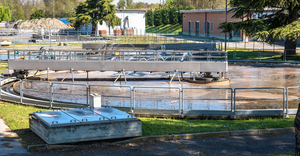July 1, 1995
The U.S. Environmental Protection Agency wants to breathe new life into old industrial sites.
Through its Brownfields Action Agenda, the agency plans to create incentives to clean up and re-develop deserted industrial and commercial sites located in urban areas. These sites may total several hundred thousand, according to General Accounting Office estimates. But as long as liability and cleanup standards under the federal Super-fund law remain fuzzy, these sites will remain vacant and contaminated. Instead, business and industry will invest scarce development dollars in relatively clean sites, leaving cities with a diminished tax base and unmitigated environmental worries.
EPA envisions some 50 pilot community programs aimed at devising cleanup and re-development strategies for brownfields sites. Agency officials also say they'd like to limit the liability of firms that re-develop contaminated properties.
Meanwhile, the states have already begun to encourage the rehabilitation of brownfields sites. Not surprisingly, the most aggressive and sophisticated programs are in the rust-belt areas. Illinois, Indiana, Ohio, Massachusetts and Michigan have programs that cover how clean a site must be, when liability is limited, how the state will supervise the work, who and what qualify for the programs, and what, if any, dealings with the surrounding community are necessary.
Indiana law requires a site re-developer to sign a remediation agreement that covers a work plan, reimbursement to the state for oversight costs, a dispute resolution process, and indemnification. When a job is finished, the state issues a final certificate of completion. The Illinois and Massachusetts programs also involve active state participation in the project from start to finish.
Site rehabilitation in Ohio, by comparison, involves less supervision by state environmental officials. Generally, re-developers retain their own consultants and contractors to investigate site conditions and perform cleanups. When the work is finished, a re-developer must hire a certified professional with state-approved credentials to prepare a "no further action" letter, vouching for compliance with applicable cleanup standards and voluntary commitments. In theory, the state can audit cleanups in progress; in practice, the state examines fewer than 25 percent of ongoing work.
For its part, Massachusetts rewards successful re-developers by providing a covenant not to sue. Moreover, the state will protect these re-developers from monetary claims by other potentially liable individuals and firms who know about the remediation agreement and had an opportunity to participate. Upon request, Illinois will release a cooperative re-developer from further responsibility where voluntary cleanup operations are fully completed.
Ohio environmental officials must provide a covenant not to sue where a re-developer has satisfied its obligations. The covenant removes any further liability to the state for cleanup work. Officials may, however, add conditions to the covenant, covering, for example, engineering, operating or maintenance controls. The covenant and the no-action letter become part of the land records, binding on future property owners.
Many current and potential re-developers argue that brownfields programs should permit more flexible cleanup standards to induce more firms to participate. On the other hand, environmental activists complain that these programs contribute to ineffective cleanups and hasty, overly generous releases from liability.
For the most part, few state brownfields programs provide for community and public participation. Environmental officials in Indiana cannot approve or reject a voluntary remediation work plan without first notifying affected local government units and seeking and considering public comments. Ohio law does not require community involvement in individual projects, but does mandate public meetings around the state on any proposed rules, including cleanup standards.
Though conceived in a positive spirit and admirably motivated, brownfields programs nevertheless face significant obstacles. First and foremost, state laws cannot shield re-developers from federal Super-fund liability. Without supportive federal legislation, the best the EPA can do is to establish policies that limit re-developers' exposure to risk and liability. What's needed, however, is plain language in CERCLA that allows federal enforcement officials to issue binding releases of liability and meaningful covenants not to sue. Second, states need authority to fashion flexible, site-specific cleanup standards. Nevertheless, brownfields programs cannot offer wholesale releases from liability without sensibly strict cleanup requirements.
Finally, these programs must accommodate community participation without allowing re-development to be halted entirely.
About the Author(s)
You May Also Like




